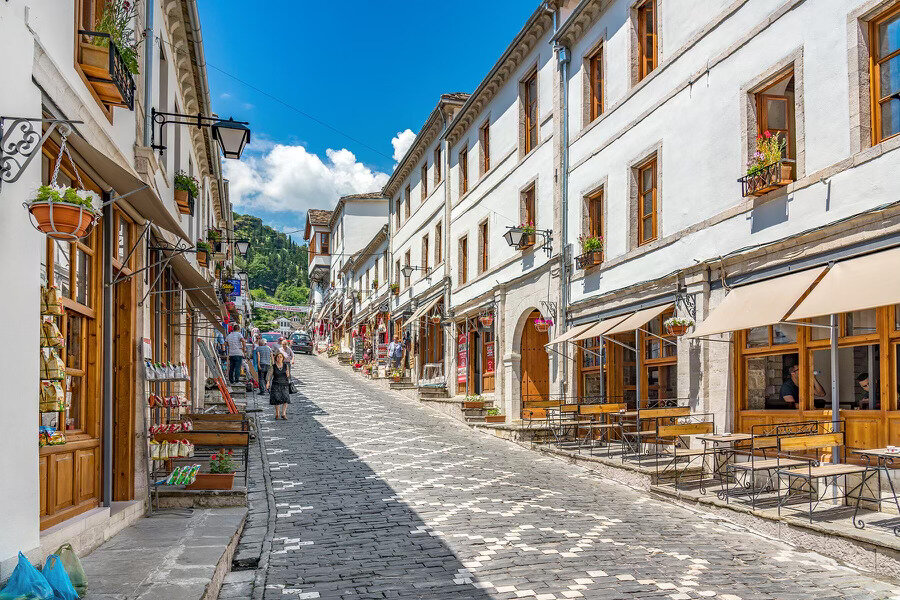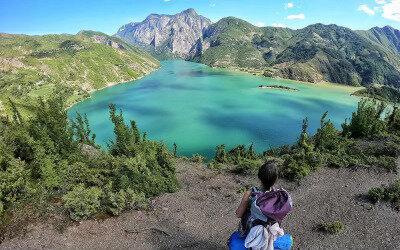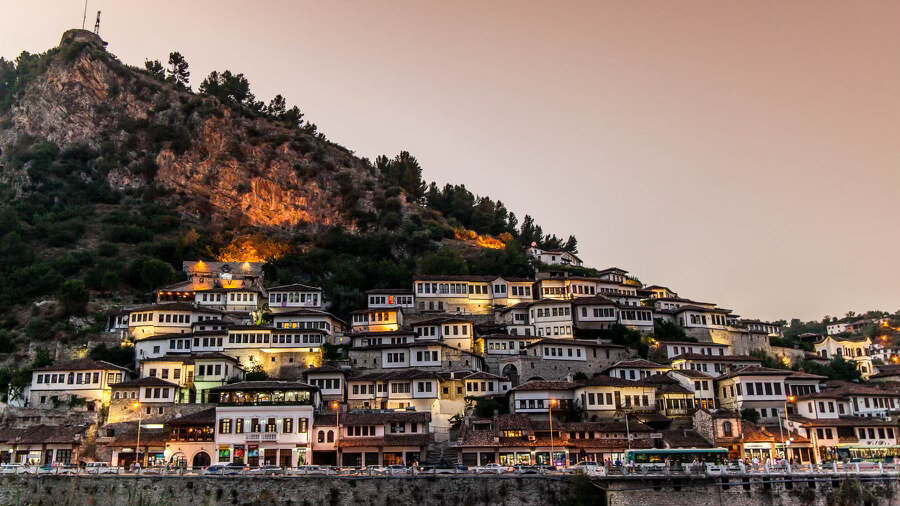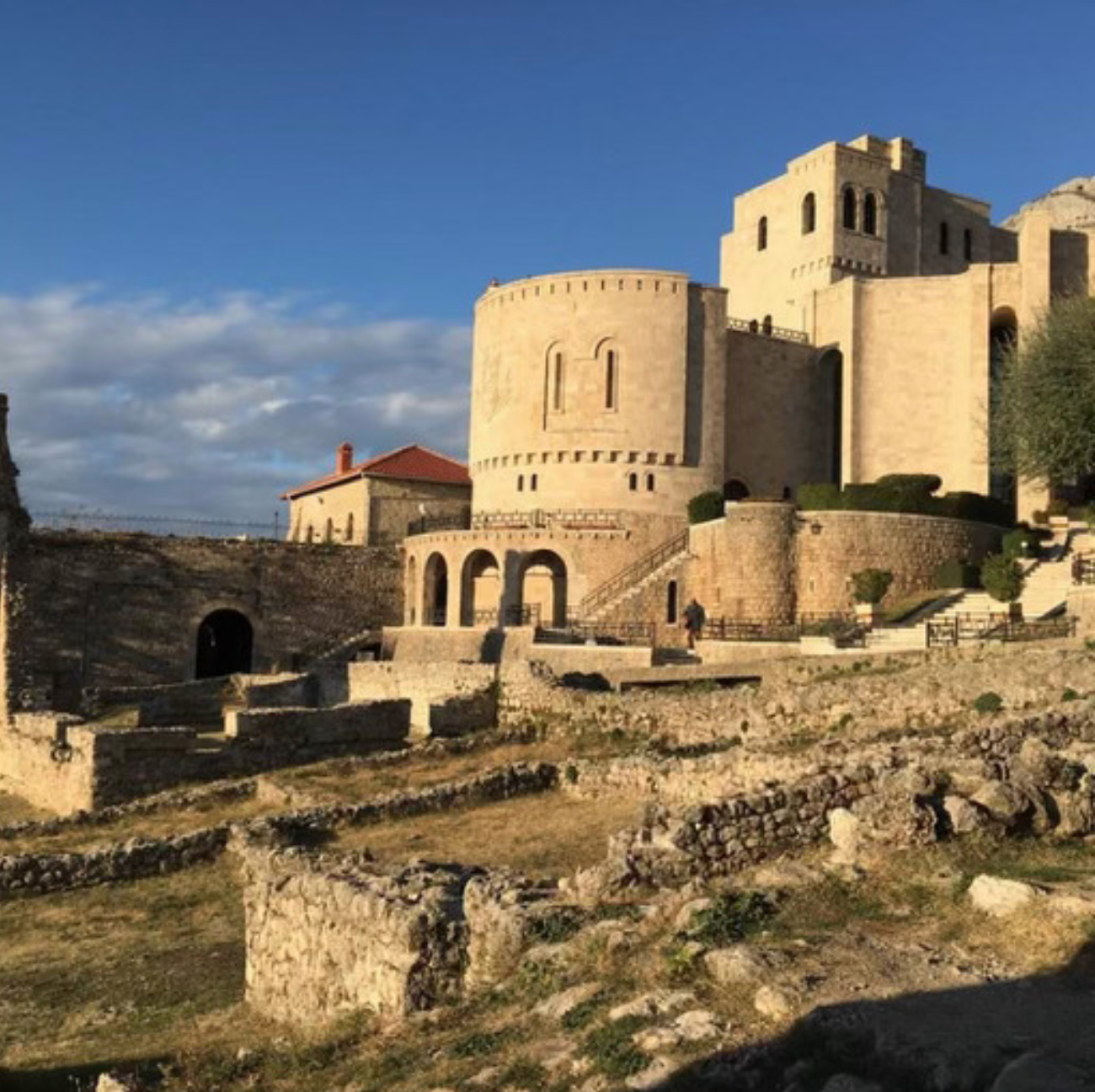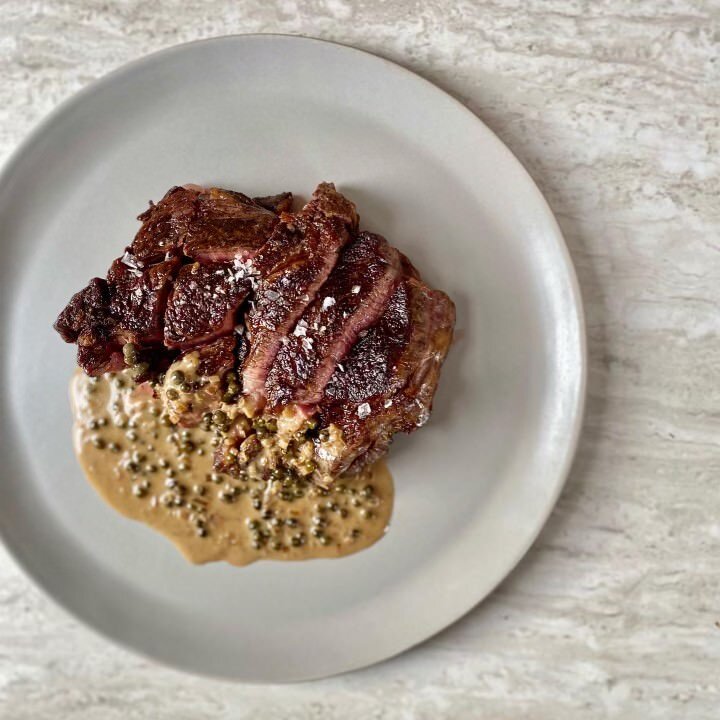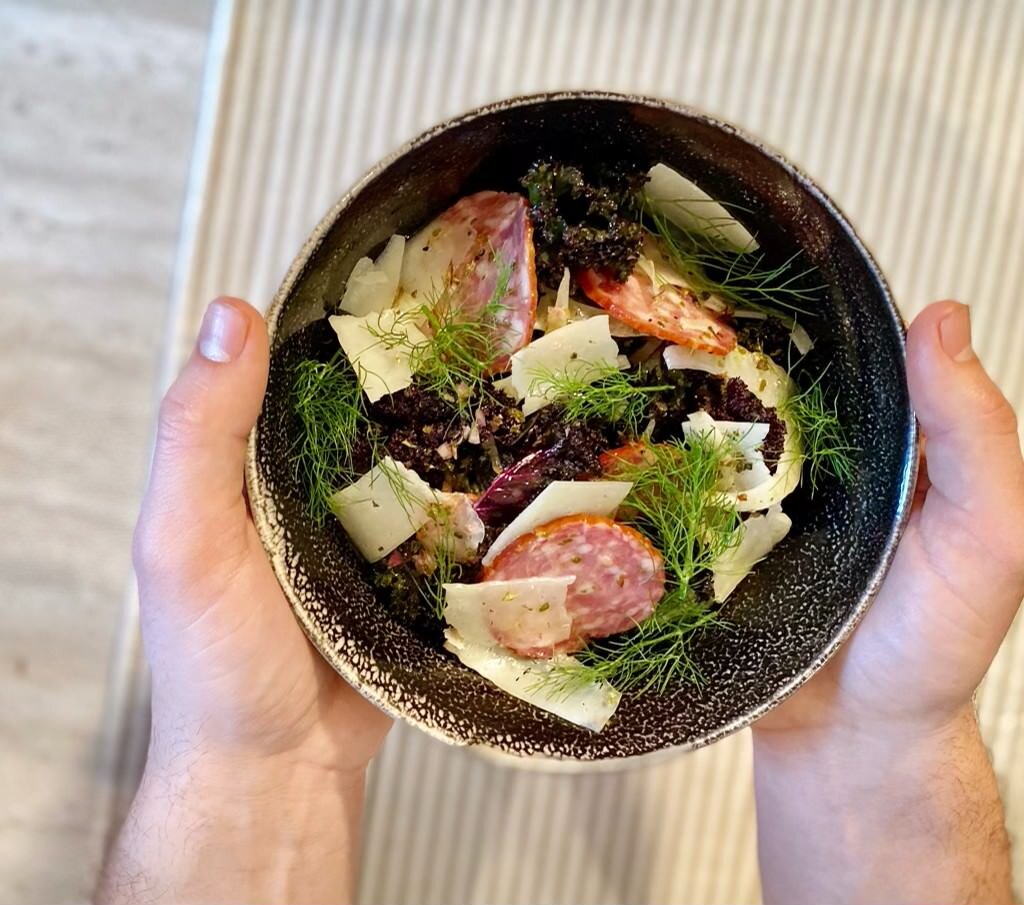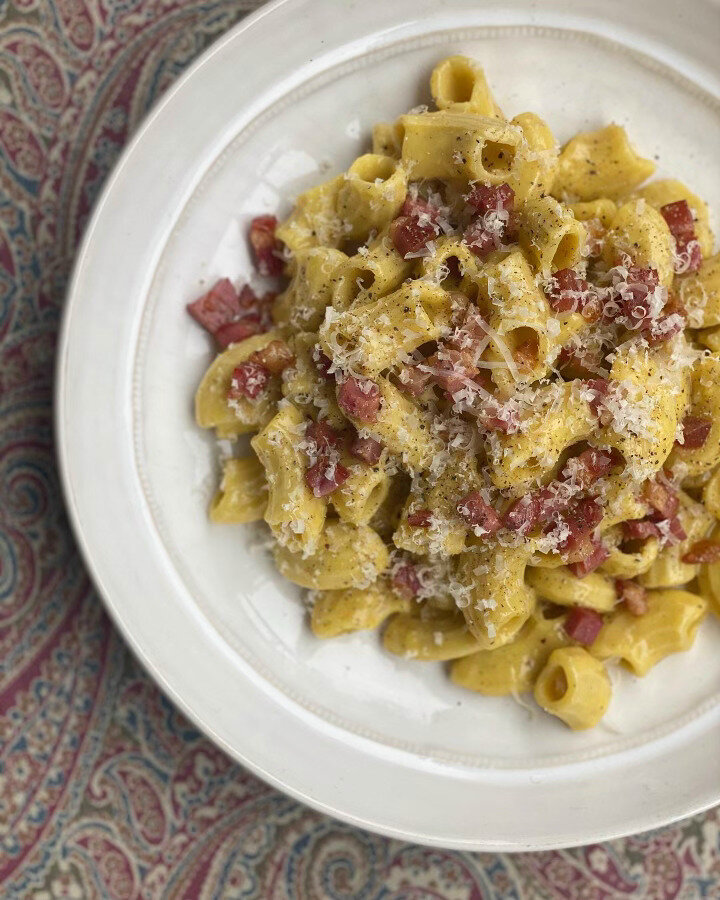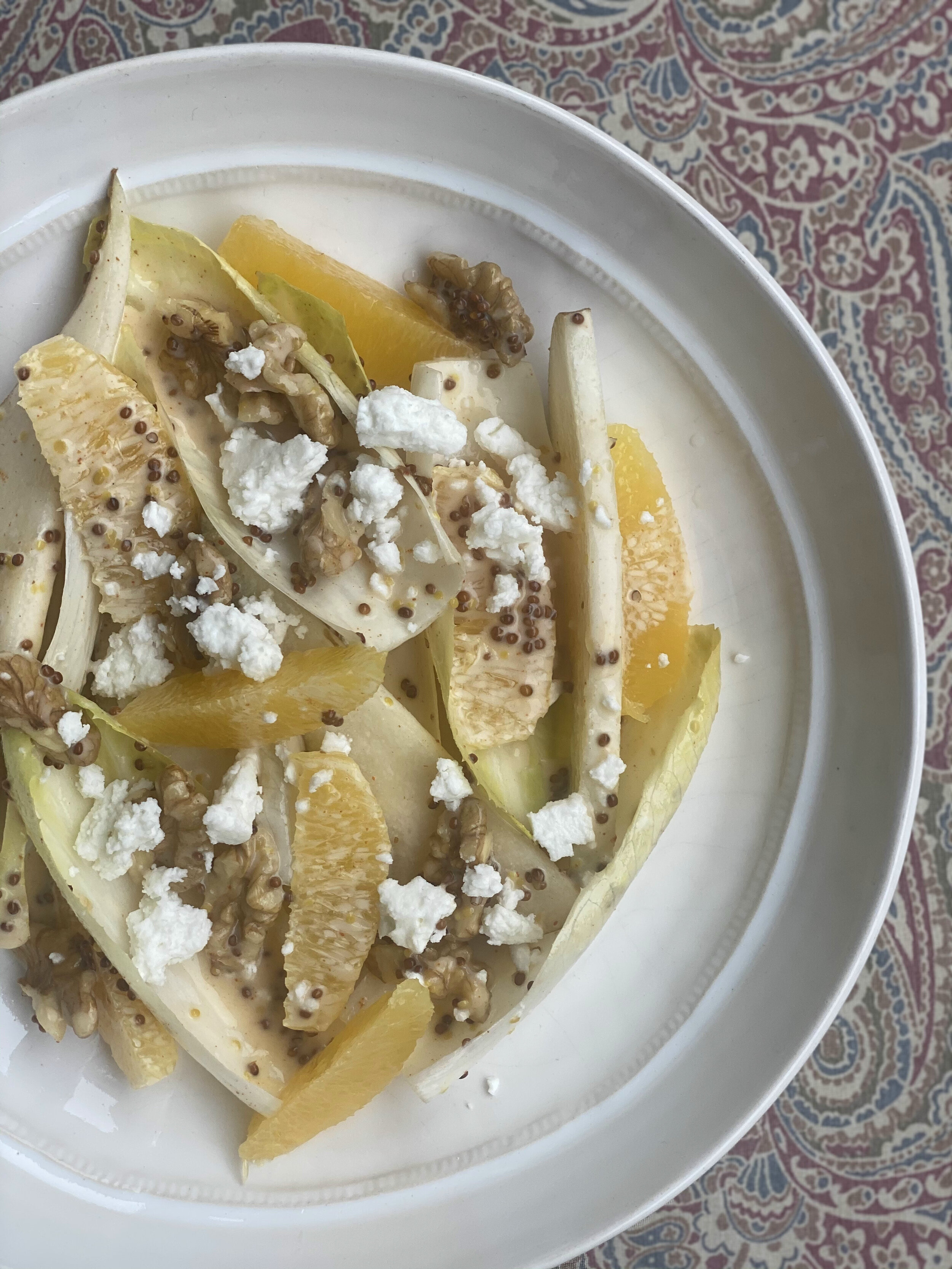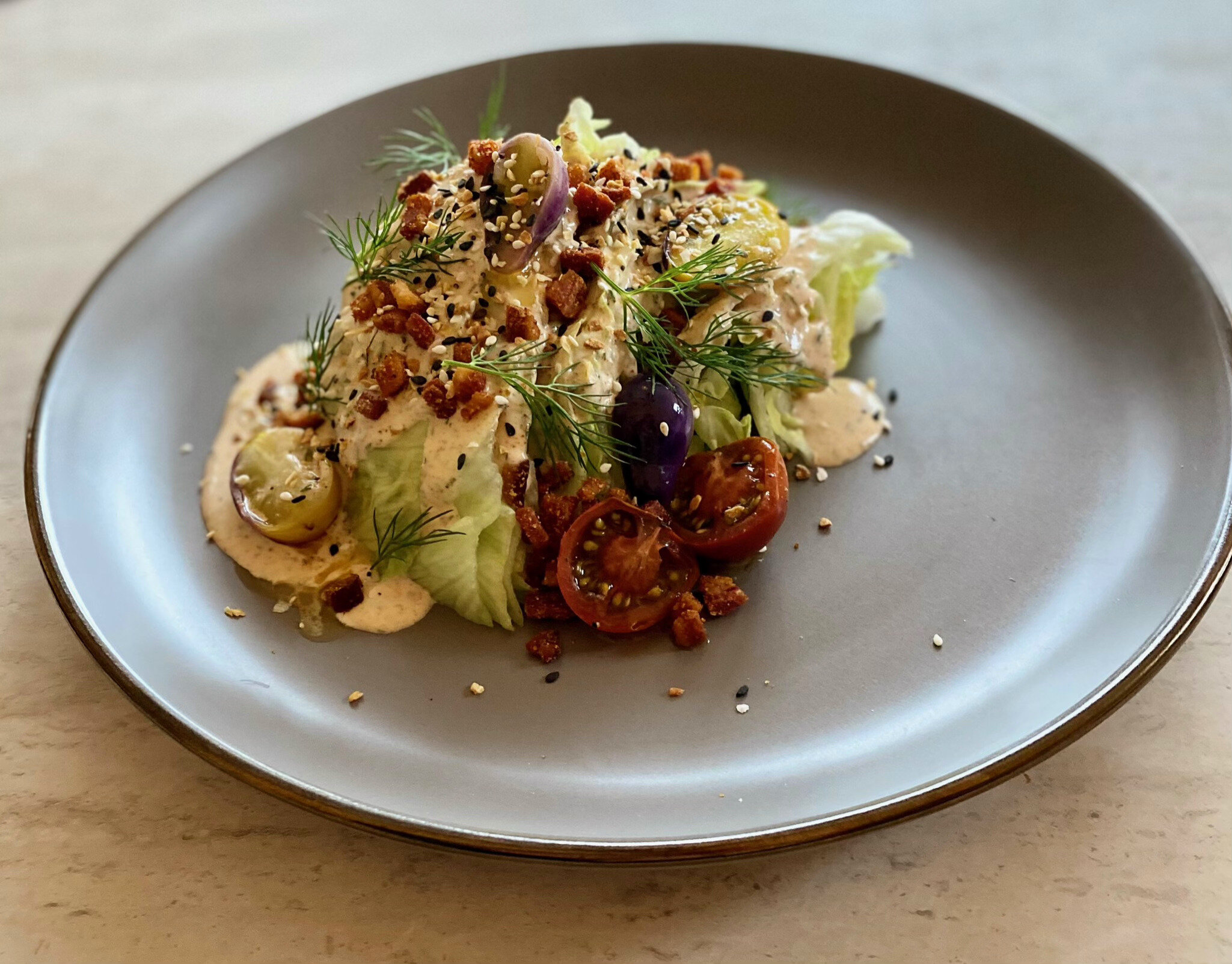Artisan Spotlight: Francis Pascal
I was fortunate to have met many interesting people when I worked at Roister and Francis is one of these folks. Given we both enjoy meeting new people and being social, we got to know each at our staff meals (which were outrageously tasty and thank goodness because for many of us, it was the only meal of the day). We connected the dots that we were both immigrants and admittedly, I didn’t know much about Albania other than it’s where Mother Theresa was from, so it was great to learn tidbits about Albanian culture over our meals before hurriedly returning to work.
Francis has the determination of Tom, wit of Jerry, and vibrates at the frequency of The Flash. He is energetic and resilient and I was guaranteed a laugh whenever we chatted. He’s grown a lot professionally and personally since we first met and we were happy to support him last summer by ordering a meal from his kitchen, which focuses on organic ingredients and seasonal products. I still salivate thinking of his chili-lime sauce (I love a good dipping sauce!)
It’s been fun connecting with Francis for this feature and we bonded over our food nerdery, proclivity for positivity, and devotion to strengthening our minds, knowing all sorts of goodness will follow suit. This spotlight even includes a traditional Albanian recipe to expand our cultural palate! And if liver isn’t your top choice, give his recipe a whirl anyway because it is a nutrient-dense “superfood” and the way it’s prepared looks mouthwatering. Finally, be sure to check out his newly branded company website Vendador where you can see his full list of services. Order from his globally themed menus (includes desserts!) and follow his food content galore Instagram :)
Where did you grow up?
I grew up in Tirana, Albania. A small country of 3 million people in the Balkan Peninsula. Its coastline hugs the Adriatic and Ionian Sea in the Mediterranean and its neighbors are Greece, Macedonia and Montenegro.
Describe Albanian cuisine…
It's certainly a blend now as history has evolved. It is very similar to other Mediterranean cultures in terms of ingredients with a heavy use of Olive Oil and Herbs but is distinct in its Turkish and Middle Eastern influence of spices as we were a part of the Ottoman Empire for 500 years.
It really evolved out of necessity- as most ancient cultures do and is kept alive by tradition. We have many examples of preserves, ferments and cured meats from the winter months, paired with a wide range of fresh produce blossoming from the spring and summer months.
How does Albanian cuisine vary by region?
It is important to note that seasonality is very much the driving force of the cuisine by means of necessity and availability. We are very much a no waste culture in which all of a plant or animal is utilized in one way or another.
The north is much colder and higher in elevation as The Alps stretch into the countryside so the cuisine is distinctive in its preservation methods ranging from curing whole animals, to varieties of cheeses, digging large holes in the ground to create cellars to store food for the months to come.
While the south enjoys the luxuries of being in much warmer climates year round, close to sea level and reaping the product of much sunlight exposure. On a longitudinal and topography scale, it is very similar to regions of Italy and even California, making it perfect for wine production, which is something we consume quite a lot of. (Not a bad place to be)
Where can we try Albanian food in Chicago?
Unfortunately there are not many Albanian restaurants in Chicago, or I should say, that really claim to be Albanian. Many of them are owned by Albanians but call themselves Greek restaurants in order to attract more people as Albanian cuisine and culture is relatively unknown. Quite sad in my opinion, but let's see if I can't do something to help.
Tell us about Tavë Dheu? Why is it special to you?
Tave Dheu (“tav th-eh-ooh”) literally translates to “Pot of the Earth”. There are many variations of it but essentially the traditional one is more of a spread or appetizer instead of a main course. Think of a liver mousse in essence. It's a blend of roasted onion, garlic, peppers, tomato, liver (typically beef) and our version of ricotta cheese -though it's derived from yogurt and not purely milk, we call it “gjiz”. A distinctive trait of it is the clay pot in which it's cooked, usually in a wood burning oven.
What makes it special to me is the history behind it but also my personal experience. This tradition is a few centuries old, where not everyone had the means to have an oven in their home, but would prepare the dish and go to the local bread baker with the pot ready and have them place it in the oven and bake it. It is something I did as a child for my family on special occasions of having people over. If you’re Albanian, that basically means every day.
Recipe and Video Below!
What was it like being an immigrant to the US at age 10 in the 2000’s?
I'd describe it as difficult initially. My parents partially spoke English and we really didn't know anyone here. They made ends meet by working several jobs while going back to school to have their degrees count here again. This is a common story for most immigrants I would say. On the same token, I was immediately exposed to cultures that I'd only heard of, read about or seen on TV before then. As a kid, filled with wonder and curiosity, it is a blessing in disguise that you may not realize until later, that you have been so lucky to stumble upon. It really helps with widening your gaze in understanding how complex and diverse we really are as humans.
What led you to hospitality?
My culture is rooted in hospitality. Naturally, as an immigrant, the only two professions you're allowed to become are either a doctor or a lawyer, although neither of them interested me. (Big shock to my parents.)
Making others feel good makes me feel good. I like the idea of servitude. I like giving and making someones day. As humans we have two faculties alone that no other animal possesses. A vivid sense of memory and a fantastic sense of imagination. I like to be a part of curating memories for people. The best way I know how is around a dinner table, planning ahead to make certain that people have a great time.
My mother is a great cook. She did it every day for every meal with no exception, as did my grandmothers. I never once heard them complain or feel like it was a burden or obligation. They loved to do it and to serve their families and friends. I have always found that connection to be very admirable.
I'm also a nerd, big time. I love history and I love science, chemistry in particular when it comes to food. I love to see what people have come up with from the invention of fire, to preserving when there was no refrigeration to how regions shape the people and culture. What they had available, their proximity to oceans or jungles. I have always been fascinated by humans, in every aspect. From a means of survival to a means of expression through food and culture.
What restaurants have you worked for?
I started my journey by working at a Breakfast Spot called “Waffles”, where I ran into a friend of mine named James Taylor, randomly, and he got me a job there. From there I moved on to work at Japonais, which eventually reconcepted and opened as Japonais by Morimoto (one of my favorite chefs at the time- I was elated) I left Morimoto in time to be a part of the opening team of Momotaro- a Japanese concept by the BOKA Group. I spent a year and half there before getting the opportunity to be a part of the opening team of Roister, the casual dining spot of The Alinea Group. This is really the bulk of my culinary growth, as a cook and eventually a Sous Chef. I was there for 3½ years. Once I decided to move on, I received the opportunity to work at Smyth for a short 3 month period while I was in between searching for my next position.
Favorite things about working in a restaurant? Least favorite?
My favorite thing about restaurants is a sense of unison. Nothing happens without everyone being on board and performing their tasks. I enjoy the camaraderie in the sense that you feel that you have an obligation to not only the guest but to your fellow workers or as I really think of them, teammates or family.
My least favorite part of it is the public understanding of what it really costs to dine out. We source incredible products, matched with amazing service and expertise and spend enormous amounts of time to seamlessly bring this experience to a guest and yet are not compensated accordingly for it. Yes, working for demanding chefs can be a very difficult part of it and I think that the industry is making a change for the better in those terms. But in my experience, my Chefs have been fair and would have happily compensated their workers further if they had larger margins to work with. It is not an easy business to survive in. It is a true labor of love.
What’s your kitchen philosophy?
This has taken some time to get here as I have evolved over time as well but I think primarily it is to teach and guide others into becoming the best versions of themselves. We all want to be the head chef, we all want to make our own food, run our own kitchens, become business owners. It is a very long process to get there, but I think helping others helps yourself in many ways. In the process you will achieve the desire to serve guests while also helping others learn the ropes of operations.
What sparks your creativity these days?
Honestly, lately it's been cravings in terms of food. I am obsessed. It's all I think about in many ways. As I branch out into other ventures of my life, I am constantly reminded of my love for it when I'm cooking and get so excited about how awesome something is coming out. Even if I've done it a million times, I still treat it like caring for a baby, being incredibly attentive to it. Books, history and imagination play a big role as well.
Where do you source ingredients for the various cuisines you cook?
Honestly, I am very much blessed to be able to have local farmer sourced, multicultural superstores close to me in which I have a great variety of choices. In the summer, I will be working a lot more closely with local Illinois and Michigan Farmers.
Any advice for novice home cooks?
“Practice makes permanent”
This is not one of those things like winning a dunking contest against Michael Jordan, where a height requirement might be helpful. Anyone can cook. You can cook. Understand that as with anything else, you might not be good at it initially but put your best effort into it, and don't take shortcuts- that will become your “permanent”. Use all your sources like books and YouTube, that's a big one. Most importantly, have fun.
What has COVID taught you as a chef?
“I will always have a job because people have to eat.” I'm sure a lot of us didn't see this one coming. All jokes aside, as cruel or not compassionate as this may seem, I’ve learned that my only option is to pivot. There is a way, and if there isn't, you are capable of making one.
How do we support you? The hospitality industry?
This is a good question. For me personally, outside of getting my services, really honest feedback helps a lot AND as any business owner may tell you, the best compliment is a recommendation.
In terms of the industry, there is a lot to unpack. Without getting too deep into it, understand in theory that what it takes for you to have this seamless experience in a restaurant is an extremely laboursome process of planning and organization on top of the physical work and not just a plate with food on it and that restaurants should be compensated accordingly.
Where can we find you on the world wide web?
You can find me on Vendador.com as my main website page and on Instagram @vendadorchicago where I post a lot of my food adventures and updates.
Photos by Francis Pascal; Albania scenery pics from Google
Tavë Dheu Recipe
Instructions:
Heat up your pot, add your olive oil and brown off the liver.
With a slotted spoon, remove the liver and set aside.
In the same pot, sauté the onion, red pepper and garlic with a pinch of salt. (This will help release some of the vegetables juices and sweat them down.)
Add in the oregano and mix to lightly toast.
Add the rest of your ingredients-the ricotta, tomato sauce and livers back in and mix well.
Place the lid back on and bake in the oven at 350 for 20-25 minutes until golden brown.
Enjoy as a dip with fresh bread and copious amounts of olive oil!
Ingredients:
15g Olive Oil
100g Onion (small dice)
100g Red bell pepper (small dice)
20g Garlic (chopped)
10g Dried Oregano
600g Beef or Chicken Liver (large chunks)
300g Tomato Sauce
300g Gjiz (yogurt ricotta- substitute whole milk ricotta)
Note on Equipment:
A clay pot would be traditional but not necessary!
